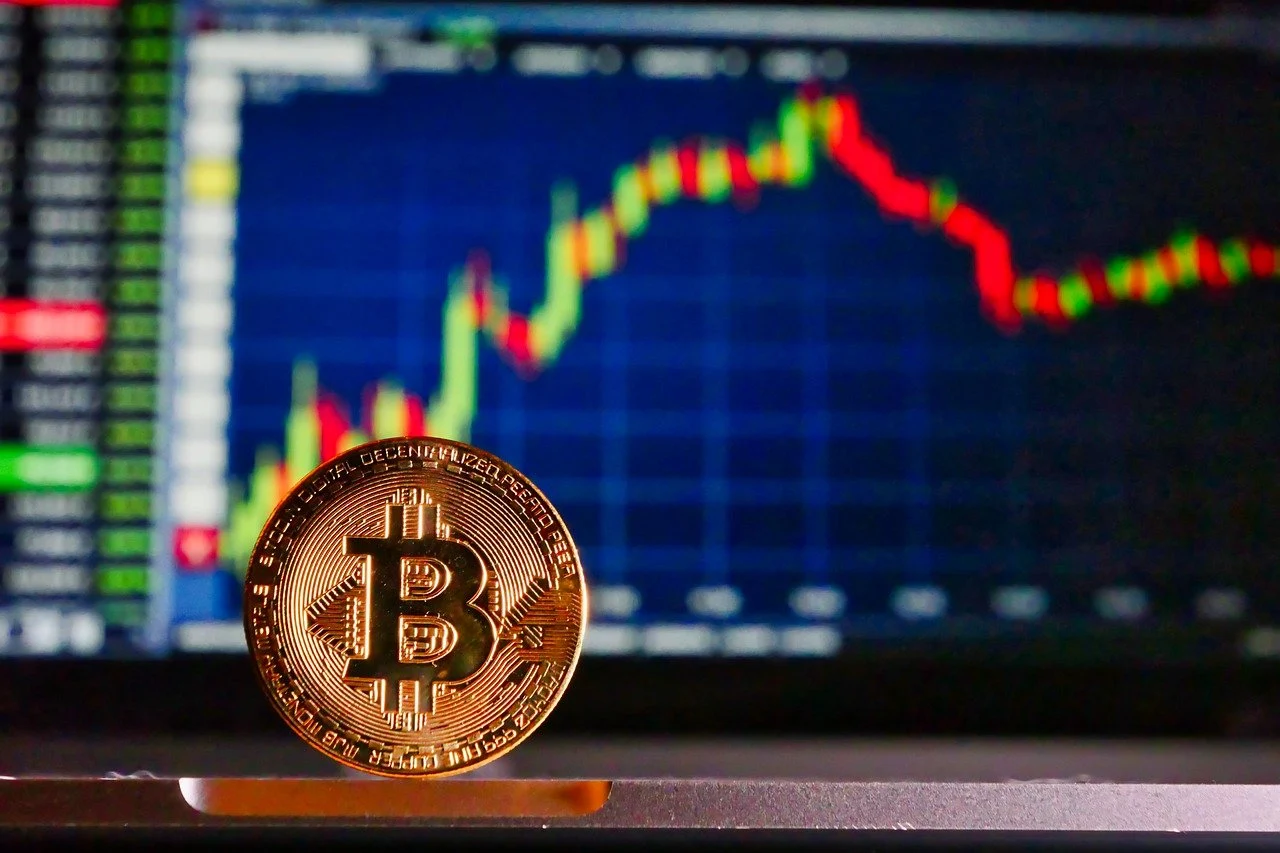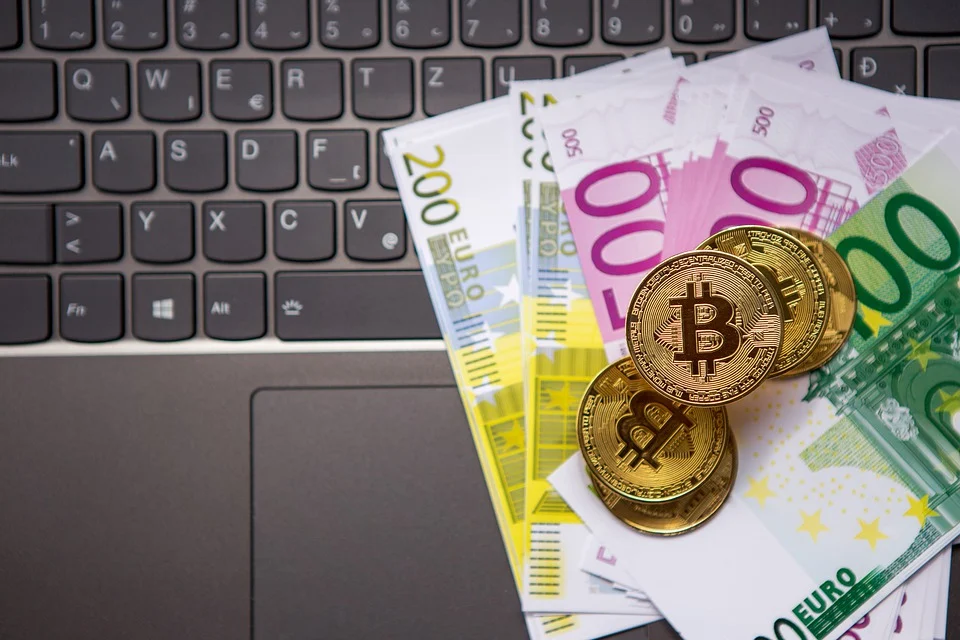>Bitcoin investors and cryptocurrency lovers are very used to the inherent volatility of this market. But another big wave is soon to come, at least if the most recent rumor is true that the SEC will approve bitcoin-backed ETFs for investment.
Such a move would undoubtedly make Bitcoin and other cryptocurrencies a little more accessible to the general public. But would it also cause a massive drop in Bitcoin’s price? Let’s examine this possibility from a few different angles and compare it to Bitcoin’s past market performance.

Tons of people don’t even know how to invest in or where to store their Bitcoin to begin with. But ETFs could help them finally put some of their money into the crypto market through the most potentially profitable digital token available - the coin that started the entire industry: Bitcoin itself.
ETFs, or exchange-traded funds, are bundles of stocks or securities which are then sold as shares themselves. One can invest in an ETF and expose their portfolio to several securities or, in the case of a Bitcoin-backed ETF, cryptocurrencies. They purchase a share in the ETF and pay a modest fee. It’s a great way to get average people investing in crypto coins, and there’s evidence that the SEC may approve a Bitcoin-backed ETF sometime in the near future.
Because of a single recent tweet sent out by the SEC on October 14, 2021. In brief, it simply warned that “investors should understand that Bitcoin, including gaining exposure through the Bitcoin futures market, is a highly speculative investment," while linking to a previous June bulletin. Naturally, this has already driven BTC's price sky-high.
It’s uncharacteristic for the SEC to send out information like this. Therefore, many have interpreted the tweet as a sign that the SEC is considering approving crypto ETFs in the very near future. At the time of this writing, however, the SEC has not approved any ETFs backed by Bitcoin or any derivatives of the primary crypto coin.
That said, speculation about crypto ETFs is nothing new. In fact, ever since digital tokens were taken seriously by the broader market and general public, people have been clamoring for Bitcoin-backed ETFs so they could (relatively) safely invest in this new and potentially profitable market.
According to crypto enthusiasts and many Wall Street analysts, the time to buy Bitcoin is right now. Even though crypto ETFs have not been confirmed in the least, analysts are clamoring to put their money on this digital token due to one often repeated Wall Street rule: buy the rumor, sell the fact.
Soon enough, other investors not “in the know” purchase the same security and continue to drive the price up in a speculative frenzy. This eventually reaches a peak as the rumored event occurs. But as soon as the speculative development happens, savvy investors start to sell, dropping the price of the security a bit.
Other investors soon follow suit, and before long, the reverse of the cycle occurs: a massive selloff happens and the price of the security plummets. Those who fail to catch wind of the fall are left “holding the bag.”
It’s easy to see how this rule of thumb or investing strategy applies to the Bitcoin-backed ETF rumor. Lots of investors speculate that crypto ETFs are around the corner, so they are purchasing Bitcoin and other digital currencies ahead of the official announcement.
This may indeed be driving up Bitcoin’s price. We’ve seen it happen before, as the price of the digital token reached nearly $65,000 when it was listed on Coinbase in April 2021, before sharply dropping once that event came and went. Bitcoin rallies are a fact of life, but will we see another one with the launch of crypto ETFs?
Some skilled investors and commodity strategists don’t think so, such as Mike McGlone of Bloomberg Intelligence. According to McGlone, any futures-based Bitcoin ETF is unlikely to trigger a massive selloff. In his opinion and in the opinion of many other analysts, those who hold Bitcoin and cryptocurrencies are bullish by their very natures.
They’re unlikely, says McGlone, to sell their coins just because there are now ETFs for the general public to invest in a little more securely. In the minds of many Bitcoin investors, this could just be another opportunity to once more ride the digital token to unprecedented heights of profitability.
That said, the general public doesn't fully understand crypto coins all that well, and it's possible that average crypto holders or Bitcoin investors may indeed start to sell their coins as ETFs launch. Time will tell whether the rumor-fact truism is really true when it comes to BTC.
Such a move would undoubtedly make Bitcoin and other cryptocurrencies a little more accessible to the general public. But would it also cause a massive drop in Bitcoin’s price? Let’s examine this possibility from a few different angles and compare it to Bitcoin’s past market performance.

The potential value of Bitcoin ETFs
One of the latest developments in ETFs is the possibility of one backed by the original cryptocurrency. It’s worth noting that Bitcoin investing is nowhere near as common or popular as crypto enthusiasts might have you believe. That’s partially because of the abstract value of Bitcoin and similar crypto coins, but it’s also because investing in Bitcoin can be pretty tricky if you don’t know where to start.Tons of people don’t even know how to invest in or where to store their Bitcoin to begin with. But ETFs could help them finally put some of their money into the crypto market through the most potentially profitable digital token available - the coin that started the entire industry: Bitcoin itself.
ETFs, or exchange-traded funds, are bundles of stocks or securities which are then sold as shares themselves. One can invest in an ETF and expose their portfolio to several securities or, in the case of a Bitcoin-backed ETF, cryptocurrencies. They purchase a share in the ETF and pay a modest fee. It’s a great way to get average people investing in crypto coins, and there’s evidence that the SEC may approve a Bitcoin-backed ETF sometime in the near future.
Is it wise to buy Bitcoin now or later?
For many, the time to buy Bitcoin is now. Why?Because of a single recent tweet sent out by the SEC on October 14, 2021. In brief, it simply warned that “investors should understand that Bitcoin, including gaining exposure through the Bitcoin futures market, is a highly speculative investment," while linking to a previous June bulletin. Naturally, this has already driven BTC's price sky-high.
It’s uncharacteristic for the SEC to send out information like this. Therefore, many have interpreted the tweet as a sign that the SEC is considering approving crypto ETFs in the very near future. At the time of this writing, however, the SEC has not approved any ETFs backed by Bitcoin or any derivatives of the primary crypto coin.
That said, speculation about crypto ETFs is nothing new. In fact, ever since digital tokens were taken seriously by the broader market and general public, people have been clamoring for Bitcoin-backed ETFs so they could (relatively) safely invest in this new and potentially profitable market.
According to crypto enthusiasts and many Wall Street analysts, the time to buy Bitcoin is right now. Even though crypto ETFs have not been confirmed in the least, analysts are clamoring to put their money on this digital token due to one often repeated Wall Street rule: buy the rumor, sell the fact.
Buy the rumor, sell the fact
The heart of this phrasing lies in the truth of the broader market - and human behavior on a broad scale. When investors think they have an inside scoop about the way the market or a security will turn, they are much more likely to purchase the security the rumor focuses on. This, in turn, drives the price of the security up.Soon enough, other investors not “in the know” purchase the same security and continue to drive the price up in a speculative frenzy. This eventually reaches a peak as the rumored event occurs. But as soon as the speculative development happens, savvy investors start to sell, dropping the price of the security a bit.
Other investors soon follow suit, and before long, the reverse of the cycle occurs: a massive selloff happens and the price of the security plummets. Those who fail to catch wind of the fall are left “holding the bag.”
It’s easy to see how this rule of thumb or investing strategy applies to the Bitcoin-backed ETF rumor. Lots of investors speculate that crypto ETFs are around the corner, so they are purchasing Bitcoin and other digital currencies ahead of the official announcement.
This may indeed be driving up Bitcoin’s price. We’ve seen it happen before, as the price of the digital token reached nearly $65,000 when it was listed on Coinbase in April 2021, before sharply dropping once that event came and went. Bitcoin rallies are a fact of life, but will we see another one with the launch of crypto ETFs?
Does this apply to crypto?
The question today is whether “buy the rumor, sell the fact” applies to digital tokens and any potential ETFs backed by them.Some skilled investors and commodity strategists don’t think so, such as Mike McGlone of Bloomberg Intelligence. According to McGlone, any futures-based Bitcoin ETF is unlikely to trigger a massive selloff. In his opinion and in the opinion of many other analysts, those who hold Bitcoin and cryptocurrencies are bullish by their very natures.
They’re unlikely, says McGlone, to sell their coins just because there are now ETFs for the general public to invest in a little more securely. In the minds of many Bitcoin investors, this could just be another opportunity to once more ride the digital token to unprecedented heights of profitability.
That said, the general public doesn't fully understand crypto coins all that well, and it's possible that average crypto holders or Bitcoin investors may indeed start to sell their coins as ETFs launch. Time will tell whether the rumor-fact truism is really true when it comes to BTC.


